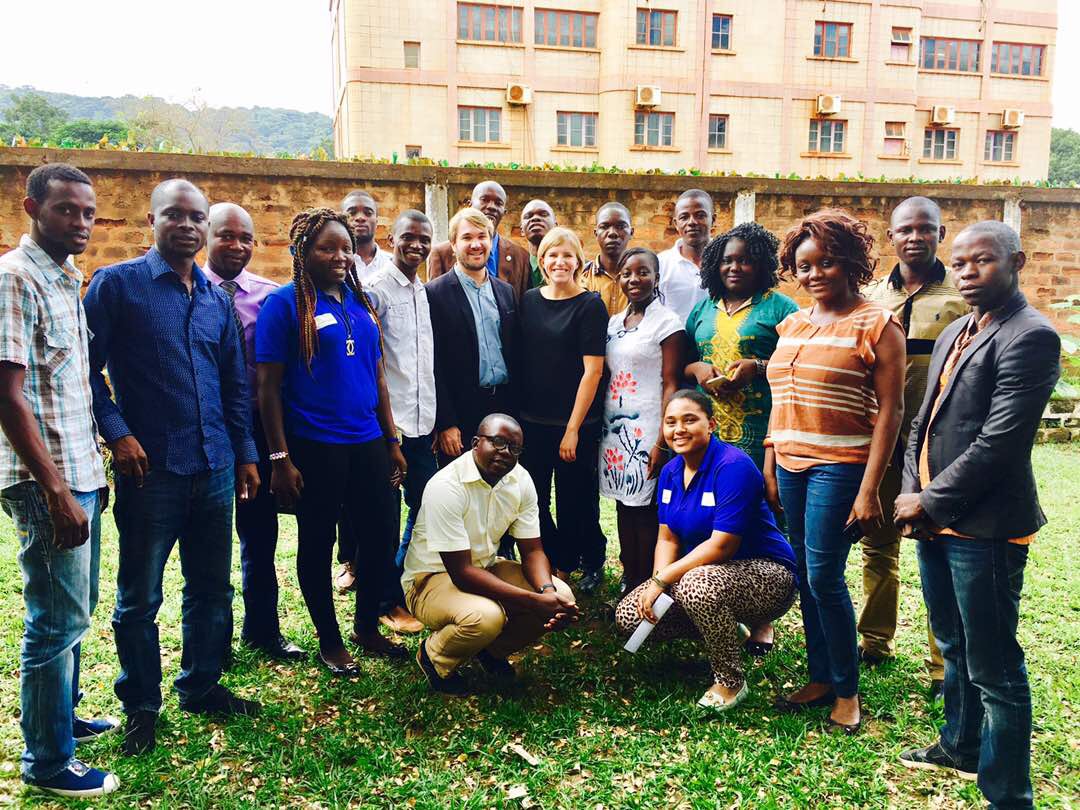
Youth have historically been marginalized in the Central African Republic (CAR), a country that experienced multiple episodes of violent conflict since its independence in 1960. Armed groups that exploited the absence of state institutions to exacerbate ethnic and religious differences during the most recent conflict are still active in CAR. Due to marginalization of youth and lack of economic opportunities in the country, youth are particularly vulnerable to joining the armed groups.
Youth empowerment is critical to bringing democratic governance and stability to CAR. Seeing a lack of youth engagement in the country, IRI brought Generation Democracy to CAR in April 2016. It started with a group of youth activists and engaged Bangui University students, stemming from diverse provinces of the country. The group gathered monthly with the support of IRI and the U.S. Embassy in Bangui to discuss key topics for the advancement of democracy and how to engage youth in CAR.
A year and a half later the CAR Generation Democracy members have organized dozens of mass civic education activities in and around Bangui to raise youth awareness of CAR’s new institutions, as well as of their role and responsibilities as citizens.
Lina Dib and Crespin Kpangba, are two members of the CAR Generation Democracy initiative. Lina joined Generation Democracy while she was President of the School Union of Central Africa. When asked about her accomplishments since joining Generation Democracy, she said that her most significant achievement is the organization of numerous sensitization activities that provided young Central Africans with information on their roles and duties as citizens. Youth in CAR are vulnerable to being victims and perpetrators of the violence, but can also play a critical role as agents of change. By involving the young people of CAR in reconciliation efforts, there is an increased chance of reaching more young people in CAR. Youth have access to their peers, some of whom could be members of armed groups; this makes youth vital to peace and reconciliation efforts. Looking forward, Lina is hopeful that youth in CAR are taking the initiative to “overcome everything that happened in the provinces and Bangui.” She wants youth to “unite for peace and social cohesion.” Generation Democracy allows Lina to accompany youth in that process and to encourage them to reach their full potential.
Crespin works for the Ministry of Mines. Just like Lina, Crespin joined Generation Democracy in CAR at its conception. To him, the most significant achievement of the past year and a half was raising youth awareness on civic education issues and developing his leadership capacities and skills. Crespin is “happy to have shared knowledge with his peers but also to have raised his profile within his district.” Crespin’s ambitions to be a candidate in the 2021 legislative elections and the 2026 presidential elections reflect his vision for the future of youth in CAR. He knows that youth can “transform the world in their way, peacefully” and that they can “show that they are capable of contributing to change around the world.”
Strategically placed at the center of some of the continent’s most troubling conflicts, the development of CAR’s government institutions will allow for greater security and strength in the region. However, CAR’s stability remains a work in progress, and the country continues to experience recurring episodes of violence. Providing youth who are not currently members of armed groups with an opportunity to play a central role in their community and a path to a better future through participation in the democratic process can provide them with an alternative to perpetrating violence.
Top